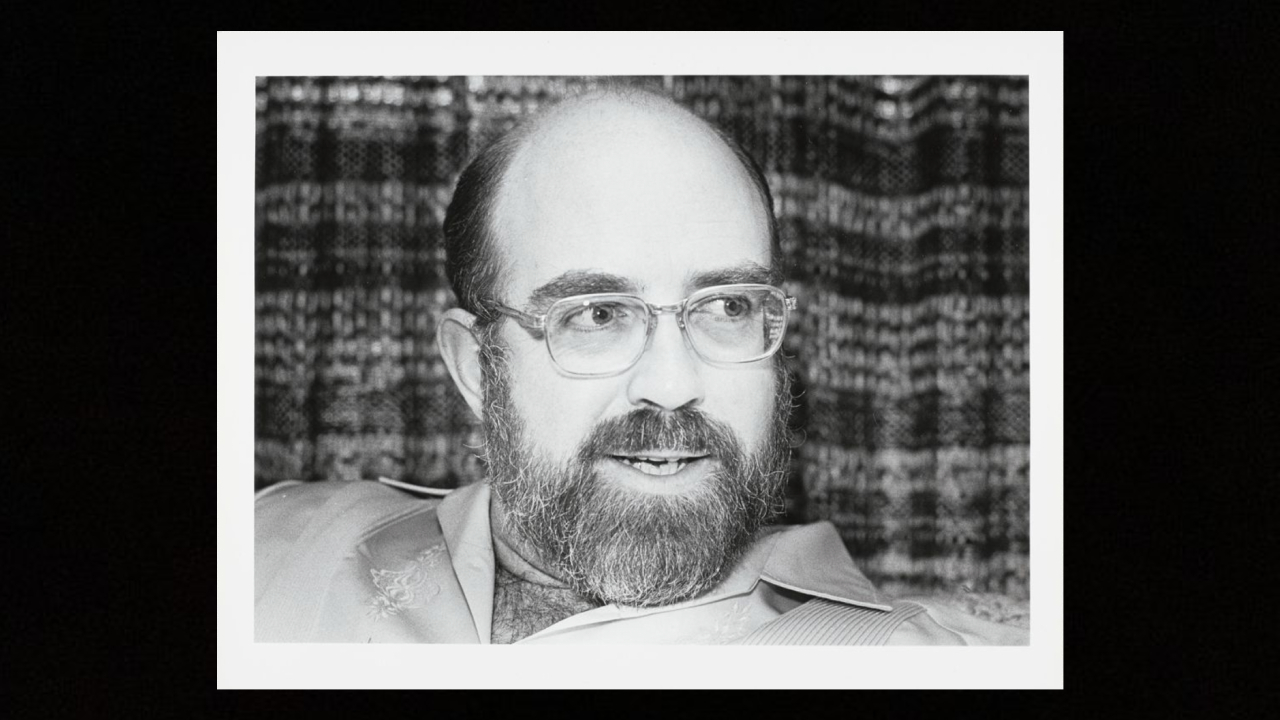Former University of Maryland journalism college professor Jon Franklin, a two-time Pulitzer Prize-winning author and storyteller known for his pioneering work in creative nonfiction, died on Jan. 21.
Franklin, who graduated from this university’s journalism college in 1970, lived in Annapolis with his wife and died in hospice care after a fall at his home two weeks prior. He was 82.
Franklin made the typical, factual writing of journalism come alive through his decades of work as a transformative nonfiction writer and reporter.
During his career, Franklin wrote seven books and won two Pulitzers for two short stories. He tested the limits of journalism with his revolutionary storytelling.
In a 2004 interview for the Nieman Foundation, Franklin spoke about the confusion between objectivity and storytelling in journalism.
“Being able to see stories in life, that’s part of the reporting,” Franklin said in the interview. “A lot of reporters find this very difficult because they confuse meaning with opinion, but they are not the same thing at all. Meanings are the facts that come out of the story.”
In 2001, Franklin returned to the journalism college as the first Merrill Chair in Journalism, where he taught literary journalism and media history. He retired from the school in July of 2010 as a professor emeritus.
[‘He helped to blaze a trail’: UMD community celebrates former chancellor John B. Slaughter]
“He cared very deeply about the reporting that leads to good writing,” Rafael Lorente, the dean of the journalism college, said. “Jon wanted to tell the story.”
Franklin remained a mentor to many of his former students even after his retirement.
Kelley French, a professor of journalism at Indiana University Bloomington and senior editor for storytelling at The Dallas Morning News, completed her master’s at this university’s journalism college and took three classes with Franklin. She was fortunate enough to continue her relationship with Franklin decades after graduate school, French said.
“He was the dominant influence in my journalism education,” French said. “He operated on such a higher plane that it takes years, I think, to really incorporate his lessons into your work.”
Writer Adina Gewirtz also attended this university’s journalism college for her master’s degree and studied under Franklin.
“He just really is an incredible writer and teacher, and that made him an incredible human being,” Gewirtz said. “He really, really left such a mark.”
Franklin’s 1986 book “Writing for Story” walks readers through the fundamentals of nonfiction storytelling techniques.
In the preface of the book, Franklin writes about how the “it” factor of writing is not some magical or mystical trait that a writer stumbles upon, but instead a conglomeration of skills and laws that all writers follow but don’t necessarily understand. The rest of the book lays out the laws and techniques of adaptive storytelling.
[UMD archive gives students a look into life, work of artist Alonzo Davis]
Franklin won the first Pulitzer given for feature writing in 1979 for his short story “Mrs. Kelly’s Monster.” The two-part story was published in The Baltimore Evening Sun and is taken directly from Franklin’s observations in the operation room.
In vivid detail, Franklin wrote about a frantic brain surgeon who attempts to save a patient whose brain is being strangled by a tangled knot of blood vessels.
Franklin won his second Pulitzer in 1985 for his seven-part newspaper story series, “The Mind Fixers,” in the new category of explanatory journalism.
While he was known for his transformative narrative writing, Franklin and his wife — novelist Lynn Franklin — were also the founders and moderators of WriterL, a listserv about literary journalism created in 1994.
Franklin and his wife founded WriterL with hopes of creating a forum that not only encouraged collaboration between journalists, but also encouraged the practice of narrative journalism.
Lorente said he used WriterL as a young journalist.
“He brought people together to have conversations about writing, which we don’t see as much anymore,” Lorente said. “You could lurk in the listserv and learn from all these people all over the country.”



